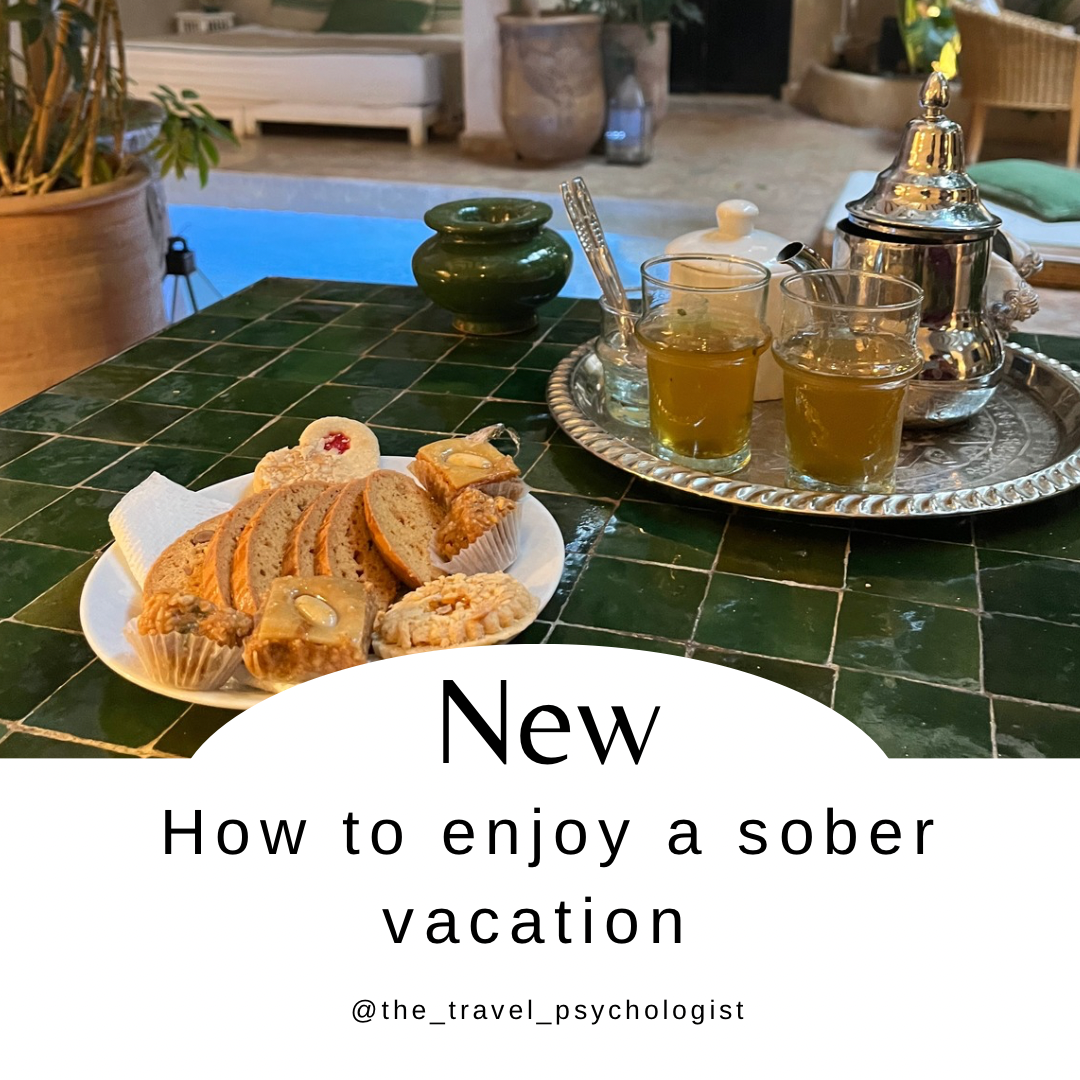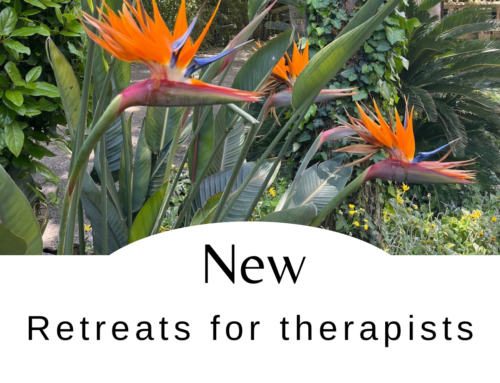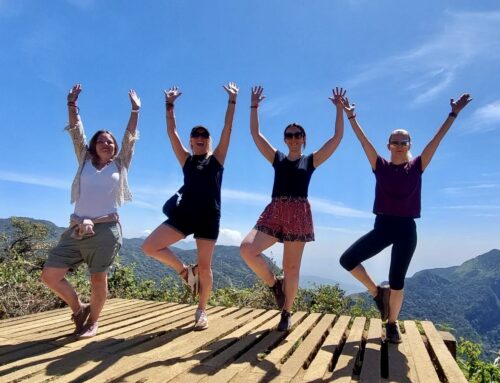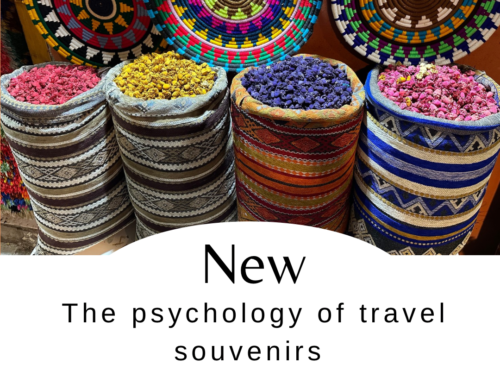By Dr Fiona Dowman, Clinical Psychologist and Addiction Specialist, Purple Bridge Psychology
For many, drinking is a holiday tradition, associated with celebration and unwinding, making the idea of a ‘sober vacation’ seem out of place. However, some people see a holiday as the perfect opportunity to take a break from alcohol, viewing it as a chance to fully recharge and reset.
If you are planning a sober vacation, it could be because you’re ‘sober curious’ and want to explore the benefits of an alcohol-free lifestyle. Or you may be in recovery from an alcohol problem and focused on avoiding relapse during your trip.
Note: if you think you might be dependent on alcohol, it’s not advisable to suddenly stop drinking as it can be dangerous. It is best to cut down gradually with the help of a professional.
Despite alcohol being ingrained within British culture, alcohol-free vacations are becoming more and more popular. In a recent survey, almost half of 18-24 year olds reported that they are choosing to occasionally or regularly drink low or non-alcoholic alternatives (Portman Group, 2023).
Before we get into some tips for achieving (and enjoying) an alcohol-free holiday, let’s begin by acknowledging some of the potential benefits. Why choose a sober vacation? Well, for one, it could save you money on your trip, you won’t have to deal with hangovers, there are health benefits, and the potential for improved sleep and a clear head during the day.
As a psychologist specialising in addiction, I often hear from people trying to avoid coming into contact with alcohol. However, they find it nearly impossible due to how easily accessible it is, especially when others around them are drinking. That’s why I suggest approaching a sober holiday with the acceptance that alcohol might be present. While it’s helpful to think about ways to reduce your chances of drinking, also consider whether your strategies are too restrictive and might take away from your overall enjoyment of the trip.
When preparing for a sober vacation, you might consider avoiding happy hour or any activity you associate with drinking. Or you could ditch the holiday altogether but that isn’t much fun! There’s another option: by practicing mindfulness and changing your relationship with alcohol, you can acknowledge that you may experience cravings, discomfort or temptation to drink, and you can still enjoy your vacation.
How can mindfulness help me have a sober vacation?
Jon Kabat-Zinn describes mindfulness as purposefully and non-judgmentally focusing our attention on the present moment. Acceptance and Commitment therapy (ACT) incorporates mindfulness and helps us to distance ourselves from unhelpful thoughts and take action that aligns with our values. By taking lessons from ACT and learning to be mindful, we can change our relationship with alcohol, allowing us to respond thoughtfully rather than react impulsively to any drinking urges. Here’s how:
Embrace new experiences
Make the most of being sober and clear-headed by fully embracing each moment with curiosity. Use this time to explore your surroundings with all your senses, experiencing things in new ways. Whether you’re doing a familiar activity or trying something new, approach it like a curious child, pay attention to the details of what you see, hear, feel, smell, and taste. For example, on the beach, notice the texture of the sand under your feet, the warmth of the sun on your skin, the sound of the waves, and the fresh scent of the air. If you’re swimming, focus on the water’s temperature and movement. If you get distracted by thoughts or urges about drinking, gently bring your attention back to the sensations around you. It’s natural for your mind to wander, so don’t be discouraged if you need to refocus several times.
Watch your thinking
Notice any alcohol related thoughts that pop up such as “One drink won’t hurt” “I’m missing out” or “sobriety isn’t fun.” Our thoughts can be powerful, and we often accept them without question and feel that we need to give them attention or respond to them. However, the more we learn to notice and observe our thoughts, the less we get caught up in them, allowing us to focus on what really matters. To create distance from these thoughts, try acknowledging them by saying to yourself, “I notice I’m having the thought that…” For example, you might say, “I notice I’m having the thought that I’m missing out.”
Make room for emotions
Be careful not to misinterpret emotions. They tell us something important about what we care about. It’s natural to feel uneasy, uncomfortable or anxious about the prospect of not drinking on holiday. You might notice anxiety provoking thoughts pop up such as “how will I say no to a drink?” “What if I am tempted to drink?” etc. It’s our internal alarm system warning us to be cautious about the unknown as it might not be safe. If we respond to these feelings by drinking it only provides a temporary escape, ultimately worsening anxiety and depression in the long run (Churchill & Farrell, 2017), due to how alcohol affects the central nervous system and our failure to develop coping mechanisms. Instead of trying to fight these feelings, make space for them during your trip and try to respond to what your emotions are communicating. For instance, if anxiety shows up, do something soothing and relaxing. If sadness shows up, try to do something you enjoy or speak to someone supportive.
Connect with values
It’s worth taking some time to reflect on your values before you embark on your journey. Here are some questions to consider:
- What and who is important to you?
- What kind of person do you want to be on this holiday?
- How do you want to behave and interact with other people?
- Does drinking alcohol align with these values?
- If not, how would you spend your holiday if you acted in accordance with your values?
Do what matters
Now that you are clear on you values, it’s time to match values to actions. Check that your actions bring you closer to what matters rather than pulling you away. This can help to guide your decisions about whether to drink alcohol in various situations as well as how best to spend your alcohol-free time. If you value connection, you might choose to spend quality time with people over dinner while enjoying a mocktail or soft drink. If you value growth and learning, you might decide to visit historical landmarks or immerse yourself in a good book.
Seek support
It’s not always easy to break free from alcohol on your own and you might need some support along the way. If you are traveling with a group of like-minded people, it’s a great opportunity to create lasting memories with people who also share your values and can provide judgment-free support. If that’s not possible, try to find at least one supportive person in your life you can tell about your plan to enjoy a sober vacation and reach out to them for moral support if you feel the temptation to drink pulling you in.
What if I have a drink whilst I’m on holiday?
If things don’t go to plan and you end up drinking, don’t forget to be kind to yourself! Think about what you would say to someone you cared about if they were in the same situation, chances are, you would respond with compassion. Self-compassion is important because being overly self-critical can lead to wanting to escape through more drinking and decrease your motivation to continue your efforts to stay alcohol-free.
References:
Churchill, S. A., & Farrell, L. (2017). Alcohol and depression: Evidence from the 2014 health survey for England. Drug and Alcohol Dependence, 180, 86–92.
Portman Group. (2023). YouGov survey shows rise in popularity of low and no alcohol amongst young people. Retrieved 13/10/2024, from https://www.portmangroup.org.uk/portman-group-and-yougov-low-and-no-alcohol-consumer-trends-report-a-new-era-of-mindful-consumption





